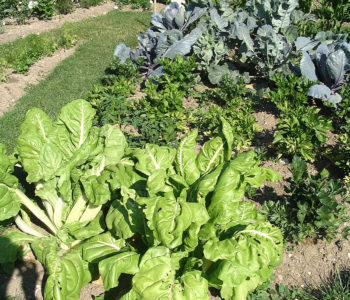
Patrick Charpiet
Ever since I was a little kid, I have been fascinated by the idea of growing my own food. My parents only had one garden when I was growing up, but I remember being amazed at the sheer magic of putting seeds in the ground and watching them transform into something I could eat. Mom and Dad thought it was too much work and never did it again, but I saw it as an aspect of the Circle of Life that I could never get tired of. Now that I am older, I plant a vegetable garden each spring.
Now, don’t get me wrong, I am no master gardener, but prior to planting, I till the soil, remove the rocks, kill off the weeds and perform dirt tests to determine what kind of additives I need to put into the turf in order for my seedlings and plants to survive and thrive. I also read the seed packets carefully and sow each and every one according to the instructions, thinning them when I am supposed to and watering them when Mother Nature fails to comply.
As for what happens after that – it’s anyone’s guess. I don’t exactly understand it myself, but in spite of my diligence, I do not end up with perfectly positioned rows of radishes, potatoes, corn and greens. Some of the seeds start off strong only to fizzle out over a few weeks. Some seeds grow healthy looking foliage, but have nothing going on below the surface. Some of the plants turn out just fine, some are mishapen and some never germinate at all. It’s as if the plants have minds of their own.
I’m sure some of them are impacted by outside influences such as local wildlife, the weather or a rogue weed here or there, but the vast majority of them have the same chances, access to everything I can provide for them and yet things still go wrong.
It’s really heart breaking when I put that much time and effort into something and it doesn’t work out. Oh sure, I can throw some seasons up to extenuating circumstances and things outside of my control, but sometimes I find myself shaking my head and wondering what I’m doing wrong. I go over my notes, revisit techniques from other successful years and sometimes I send in the reserves, or fertilizer, to give my otherwise organic beds a little boost of morale. I tell myself that a trace of the chemical will remain with the plants even after the larger infusion is absorbed, but the one thing I never stop doing is trying.
After all, I still have hope that one day; the yield will surprise me and grow beyond my wildest expectations: That I will work with a new variety and have satisfying results. That the specimen, which has always been impossible, will somehow miraculously grow. After all, when it’s time for the Harvest, you want to gather everything you’ve planted to your Table, where there is room for everything that has bloomed in Your Love.
Today’s readings for Mass: 1TM 6:13-16; PS 100: 1B-2,3,4,5; LK 8: 4-15
